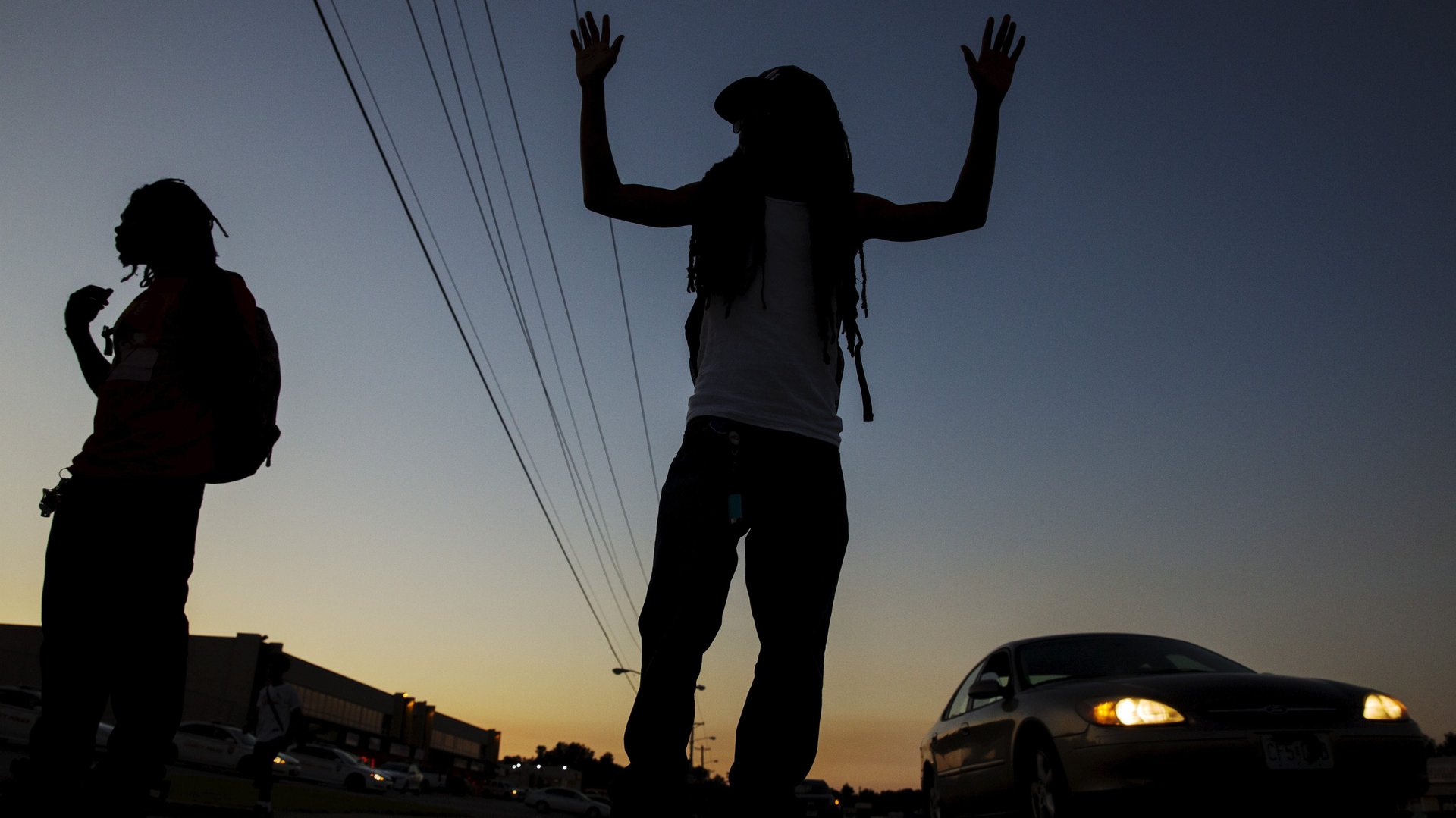Black drivers in Missouri are 85% more likely to be stopped than whites
It has been four years since the killing of the unarmed black teenager Michael Brown, which sparked huge protests against police brutality and racial profiling in Ferguson, Missouri. And now, new statistics on the inconsistent treatment of blacks and whites by police in the state show how little has changed since then.


It has been four years since the killing of the unarmed black teenager Michael Brown, which sparked huge protests against police brutality and racial profiling in Ferguson, Missouri. And now, new statistics on the inconsistent treatment of blacks and whites by police in the state show how little has changed since then.
Black drivers are 85% more likely to be pulled over than their white counterparts, according to recently released data from the attorney general of Missouri’s annual vehicle stops report.
The report gathered data from 606 law enforcement agencies in Missouri in 2017, while an additional 55 agencies declared that they made no traffic stops during that calendar year. The attorney general’s office then analyzed the number of times police officers stopped a car, searched the vehicle, found contraband, and then carried out an arrest.
The report’s compilers used a “disparity index” to compare the percentage of traffic stops of certain racial groups to that groups’ driving age population. If, for example, white residents accounted for 80% of the driving-age population and 80% of traffic stops then the disparity index for a white resident would be 1. If the figure comes in higher than 1, it indicates that the group has been disproportionately stopped. If the figure comes in under 1, then it shows that the group was underrepresented.
White residents accounted for 77.2% of all traffic stops in 2017, but make up an estimated 82.8% of Missouri’s driving age population. With a disparity index of 0.93, white residents were stopped less than expected. In contrast, black residents represent 10.9% of the driving-age population but 18.7% of all traffic stops—a disparity-index value of 1.72. Black residents were stopped at a rate 72% greater than expected and stopped at a rate 85% higher than whites.
There were glaring disparities in search and arrest rates too. Black drivers were 1.51 times more likely to be searched than white drivers. Meanwhile, Hispanic drivers were 1.45 times more likely to be searched than white drivers. Overall, 7.1% of Hispanic and 6.6% of blacks drivers were arrested after stops, compared to 4.2% of their white counterparts.
The report also measured the number of times a search resulted in a contraband being found. Contraband was found in 35.5% of searches of whites drivers, compared with 32.9% for blacks and 27.9% for Hispanics. Thus, on average, searches of blacks and Hispanics were less likely to result in the discovery of contraband than searches of whites.
In 2014, the Black Lives Matter protest in Ferguson sparked a national conversation about police racism in the US. Though the protests went on to precipitate much larger questions of racial equality and police militarization, experts suggest that little has changed. In 2017, the NAACP, the organization fighting for racial justice, issued its first statewide travel advisory message against Missouri.